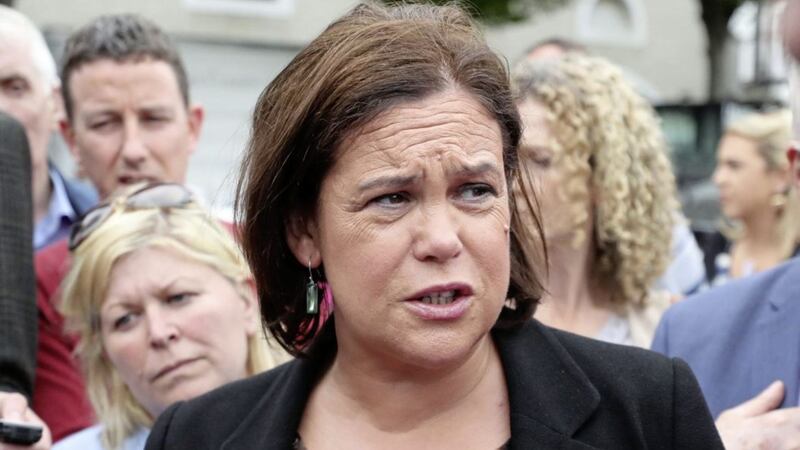Last week’s election results in the south were very disappointing for Sinn Féin.
It is also notable, however, that RTÉ’s election night exit poll showed that 77 per cent of those asked said they would support a united Ireland in a unity poll and 60 per cent said the Irish language should be used, promoted and protected.
One of the significant issues for the party to work out is why it polled so poorly in many parts of the south (albeit that very solid performances were returned in Donegal, Kerry, Waterford, Monaghan and in re-electing Matt Carty as MEP) when Sinn Féin is the only national party in the country committed to the reunification of Ireland: an aim which is actively or passively opposed by all the other parties.
The party’s leadership and its 21 TDs and Seanadoirí know they are facing an unprecedented challenge but Sinn Féin has faced significant electoral setbacks before, not least after the southern general election of 2007.
A critical assessment will undoubtedly take place and then Sinn Féin will rebuild with an accumulated wisdom and by avoiding complacency. Elections are always won long before polling day and are lost because people and parties do not chime.
The party at all levels is very aware that it has a short period of time to respond to the result – a year at most, a few months at least, to turn the situation around before the Irish government calls a general election.
The mathematics of the Dáil are precarious enough and could become more so the other side of the by-elections, which arise because of the election of former TDs to the European parliament.
The first preference votes in the European election show that Sinn Féin nationally sits in second place with 323,029 votes to Fine Gael with 479,984 and Fianna Fáil with 277,703 and the Greens with 203,000; the DUP have 124,991, Alliance have 105,928 and the SDLP have 78,589.
It is this electoral support that the party brings with it in terms of its united Ireland project, working with the Irish government to keep the north inside the EU and ensuring that an executive and assembly are restored on a rights basis with legacy, an Irish language act and marriage equality resolved and women’s health and well-being safeguarded.
The outstanding election of two Remain MEPs to one Brexit MEP, will strengthen the argument for the north to stay inside the EU, especially in the context of the Brexit crisis in Britain, and will assist those unionists who are currently thinking that it might be better to live in an agreed united Ireland inside the EU than live in a disunited UK outside the EU.
If an executive and assembly cannot be restored then it is essential that new ideas and institutions fill the gap left behind – institutions administered by the Irish and British governments and which deliver on people’s needs. The lesson of the power-sharing government shows that the north is not ungovernable but it also shows it can only be governed in the framework of the full implementation of the Good Friday Agreement especially in terms of equality and parity of esteem.
One of the most protracted, and emotionally-charged issues that face the negotiators at Stormont is legacy. The British government and unionists are blocking progress on it and have done so for years. Next Sunday the organisation, ‘Time for Truth’, are calling on people to march, at mid-day, with them in support of relatives, from all backgrounds, who lost loved ones in the conflict. Last year the group held a similar march which attracted one of the biggest crowds seen in Belfast’s city centre for some time.
The march is taking place against a background of the Ballymurphy massacre inquest hearing shocking revelations of brutality by British soldiers, which this paper daily records, and the court case of the two journalists, Barry McCaffrey and Trevor Birney, who were arrested after helping to make the film, ‘No Stone Unturned’, about the Loughinisland massacre.
The inquest and the arrest of the journalists, decades apart, show the state’s callous indifference to those searching for the truth remains unchanged in many quarters although not all as the inquest and the favourable decision involving the Lord Chief Justice in the journalists’ case shows.








